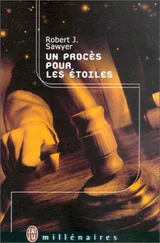Sarah Bolton - Lives of Poor Boys Who Became Famous
Здесь есть возможность читать онлайн «Sarah Bolton - Lives of Poor Boys Who Became Famous» — ознакомительный отрывок электронной книги совершенно бесплатно, а после прочтения отрывка купить полную версию. В некоторых случаях можно слушать аудио, скачать через торрент в формате fb2 и присутствует краткое содержание. ISBN: , Жанр: foreign_prose, foreign_antique, Биографии и Мемуары, foreign_language, на английском языке. Описание произведения, (предисловие) а так же отзывы посетителей доступны на портале библиотеки ЛибКат.
- Название:Lives of Poor Boys Who Became Famous
- Автор:
- Жанр:
- Год:неизвестен
- ISBN:http://www.gutenberg.org/ebooks/35950
- Рейтинг книги:4 / 5. Голосов: 1
-
Избранное:Добавить в избранное
- Отзывы:
-
Ваша оценка:
- 80
- 1
- 2
- 3
- 4
- 5
Lives of Poor Boys Who Became Famous: краткое содержание, описание и аннотация
Предлагаем к чтению аннотацию, описание, краткое содержание или предисловие (зависит от того, что написал сам автор книги «Lives of Poor Boys Who Became Famous»). Если вы не нашли необходимую информацию о книге — напишите в комментариях, мы постараемся отыскать её.
Lives of Poor Boys Who Became Famous — читать онлайн ознакомительный отрывок
Ниже представлен текст книги, разбитый по страницам. Система сохранения места последней прочитанной страницы, позволяет с удобством читать онлайн бесплатно книгу «Lives of Poor Boys Who Became Famous», без необходимости каждый раз заново искать на чём Вы остановились. Поставьте закладку, и сможете в любой момент перейти на страницу, на которой закончили чтение.
Интервал:
Закладка:
This earning a living was a hard matter; but it brought energy, developed thought, and probably helped more than all else to make him famous. The world in general works no harder than circumstances compel.
Poverty is no barrier to falling in love, and, poor though he was, he now married Margaret Miller, his cousin, whom he had long tenderly loved. Their home was plain and small; but she had the sweetest of dispositions, was always happy, and made his life sunny even in its darkest hours of struggling.
Meantime he had made several intellectual friends in the college, one of whom talked much to him about a steam-carriage. Steam was not by any means unknown. Hero, a Greek physician who lived at Alexandria a century before the Christian era, tells how the ancients used it. Some crude engines were made in Watt's time, the best being that of Thomas Newcomen, called an atmospheric engine, and used in raising water from coal-mines. It could do comparatively little, however; and many of the mines were now useless because the water nearly drowned the miners.
Watt first experimented with common vials for steam-reservoirs, and canes hollowed out for steam-pipes. For months he went on working night and day, trying new plans, testing the powers of steam, borrowing a brass syringe a foot long for his cylinder, till finally the essential principles of the steam-engine were born in his mind. He wrote to a friend, "My whole thoughts are bent on this machine. I can think of nothing else." He hired an old cellar, and for two months worked on his model. His tools were poor; his foreman died; and the engine, when completed, leaked in all parts. His old business of mending instruments had fallen off; he was badly in debt, and had no money to push forward the invention. He believed he had found the right principle; but he could not let his family starve. Sick at heart, and worn in body, he wrote: "Of all things in life there is nothing more foolish than inventing." Poor Watt!
His great need was money, – money to buy food, money to buy tools, money to give him leisure for thought. Finally, a friend induced Dr. Roebuck, an iron-dealer, to become Watt's partner, pay his debts of five thousand dollars, take out a patent, and perfect the engine. Watt went to London for his patent, but so long was he delayed by indifferent officials, that he wrote home to his young wife, quite discouraged. With a brave heart in their pinching poverty, Margaret wrote back, "I beg that you will not make yourself uneasy, though things should not succeed to your wish. If the engine will not do, something else will; never despair ."
On his return home, for six months he worked in setting up his engine. The cylinder, having been badly cast, was almost worthless; the piston, though wrapped in cork, oiled rags, and old hat, let the air in and the steam out; and the model proved a failure. "To-day," he said, "I enter the thirty-fifth year of my life, and I think I have hardly yet done thirty-five pence worth of good in the world: but I cannot help it." The path to success was not easy.
Dr. Roebuck was getting badly in debt, and could not aid him as he had promised; so Watt went sadly back to surveying, a business he had taken up to keep the wolf from the door. In feeble health, out in the worst weather, his clothes often wet through, life seemed almost unbearable. When absent on one of these surveying excursions, word was brought that Margaret, his beloved wife, was dead. He was completely unnerved. Who would care for his little children, or be to him what he had often called her, "the comfort of his life"? After this he would often pause on the threshold of his humble home to summon courage to enter, since she was no longer there to welcome him. She had shared his poverty, but was never to share his fame and wealth.
And now came a turning-point in his life, though the struggles were by no means over. At Birmingham, lived Matthew Boulton, a rich manufacturer, eight years older than Watt. He employed over a thousand men in his hardware establishment, and in making clocks, and reproducing rare vases. He was a friend of Benjamin Franklin, with whom he had corresponded about the steam-engine, and he had also heard of Watt and his invention through Dr. Roebuck. He was urged to assist. But Watt waited three years longer for aid. Nine years had passed since he made his invention; he was in debt, without business, and in poor health. What could he do? He seemed likely to finish life without any success.
Finally Boulton was induced to engage in the manufacture of engines, giving Watt one-third of the profits, if any were made. One engine was constructed by Boulton's men, and it worked admirably. Soon orders came in for others, as the mines were in bad condition, and the water must be pumped out. Fortunes, like misfortunes, rarely come singly. Just at this time the Russian Government offered Watt five thousand dollars yearly if he would go to that country. Such a sum was an astonishment. How he wished Margaret could have lived to see this proud day!
He could not well be spared from the company now; so he lived on at Birmingham, marrying a second time, Anne Macgregor of Scotland, to care for his children and his home. She was a very different woman from Margaret Miller; a neat housekeeper, but seemingly lacking in the lovable qualities which make sunshine even in the plainest home.
As soon as the Boulton and Watt engines were completed, and success seemed assured, obstacles arose from another quarter. Engines had been put into several Cornwall mines, which bore the singular names of "Ale and Cakes," "Wheat Fanny," "Wheat Abraham," "Cupboard," and "Cook's Kitchen." As soon as the miners found that these engines worked well, they determined to destroy the patent by the cry that Boulton and Watt had a monopoly of a thing which the world needed. Petitions were circulated, giving great uneasiness to both the partners. Several persons also stole the principle of the engine, either by bribing the engine-men, or by getting them drunk so that they would tell the secrets of their employers. The patent was constantly infringed upon. Every hour was a warfare. Watt said, "The rascality of mankind is almost past belief."
Meantime Boulton, with his many branches of business, and the low state of trade, had gotten deeply in debt, and was pressed on every side for the tens of thousands which he owed. Watt was nearly insane with this trouble. He wrote to Boulton: "I cannot rest in my bed until these money matters have assumed some determinate form. I am plagued with the blues. I am quite eaten up with the mulligrubs."
Soon after this, Watt invented the letter-copying press, which at first was greatly opposed, because it was thought that forged names and letters would result. After a time, however, there was great demand for it. Watt was urged by Boulton to invent a rotary engine; but this was finally done by their head workman, William Murdock, the inventor of lighting by gas. He also made the first model of a locomotive, which frightened the village preacher nearly out of his senses, as it came puffing down the street one evening. Though devoted to his employers, sometimes working all night for them, they counselled him to give up all thought about his locomotive, lest by developing it he might in time withdraw from their firm. Alas for the selfishness of human nature! He was never made a partner, and, though he thought out many inventions after his day's work was done, he remained faithful to their service till the end of his life. Mr. Buckle tells this good story of Murdock. Having found that fish-skins could be used instead of isinglass, he came to London to inform the brewers, and took board in a handsome house. Fancying himself in his laboratory, he went on with his experiments. Imagine the horror of the landlady when she entered his room, and found her elegant wall-paper covered with wet fish-skins, hung up to dry! The inventor took an immediate departure with his skins. When the rotary engine was finished, the partners sought to obtain a charter, when lo! The millers and mealmen all opposed it, because, said they, "If flour is ground by steam, the wind and water-mills will stop, and men will be thrown out of work." Boulton and Watt viewed with contempt this new obstacle of ignorance. "Carry out this argument," said the former, "and we must annihilate water-mills themselves, and go back again to the grinding of corn by hand labor." Presently a large mill was burned by incendiaries, with a loss of fifty thousand dollars.
Читать дальшеИнтервал:
Закладка:
Похожие книги на «Lives of Poor Boys Who Became Famous»
Представляем Вашему вниманию похожие книги на «Lives of Poor Boys Who Became Famous» списком для выбора. Мы отобрали схожую по названию и смыслу литературу в надежде предоставить читателям больше вариантов отыскать новые, интересные, ещё непрочитанные произведения.
Обсуждение, отзывы о книге «Lives of Poor Boys Who Became Famous» и просто собственные мнения читателей. Оставьте ваши комментарии, напишите, что Вы думаете о произведении, его смысле или главных героях. Укажите что конкретно понравилось, а что нет, и почему Вы так считаете.












